Atworld and Geotechnics
- Land development and recycling
- Soil protection and remediation of contaminated sites
- Groundwater remediation
- Soil and waste management
- Abandoned armament sites
- Military properties and conversion
- Landfill construction
- Building ground / foundation consulting
- Special civil engineering / geotechnics
- Immission control
- Raw materials exploration
- Occupational safety and health protection
- Disaster Risk Reduction
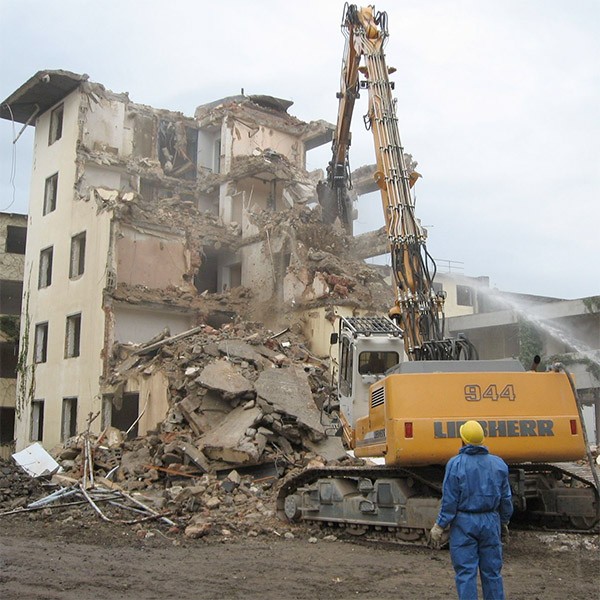
Land development - our core competence
We are also able to take on such complex projects as the responsible general contractor - benefit from synergies and minimise schedule and cost risks.
- Soil investigation
- Investigation of contaminated sites
- Preliminary, approval and implementation planning
- Explosive ordnance clearance
- Geotechnical services
- Deconstruction of industrial and commercial buildings
- Development of disposal concepts
- Soil remediation
- Groundwater remediation
- Site preparation
- Development
- Nature conservation monitoring
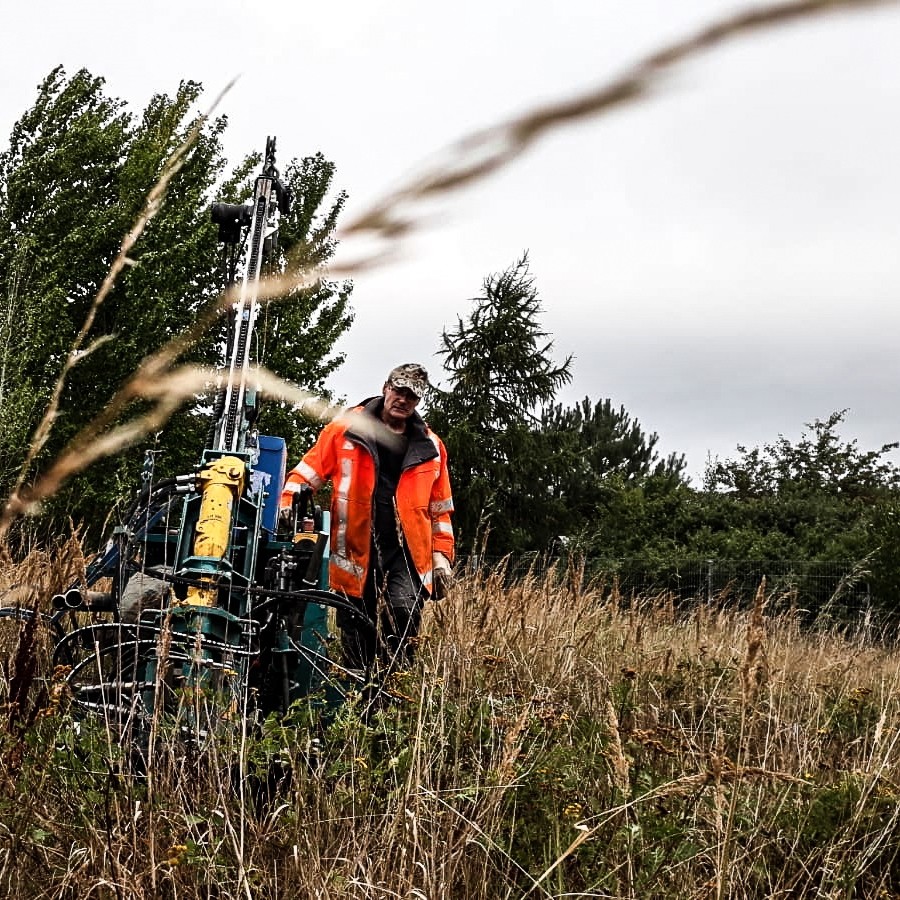
We assess such contaminated sites and old deposits with regard to their hazard potential. Then we treat them so that the areas are open to a future planned use. With our experience and equipment, we can offer you individual phases of processing or take over the entire remediation management.
- Soil investigations for precautionary soil protection
- Soil mapping
- Soil protection concepts according to BBodSchG
- Soil protection during power grid expansion
- Soil monitoring during construction
- Land management and land utilisation concepts
- Historical, orientational and detailed investigations of contaminated sites according to BBodSchG/V
- Hazard assessments for B-planned areas
- Soil investigations in fire damage cases
- Preservation of evidence soil in the case of buyer/tenant changes/construction sites
- Remediation and approval planning according to BBodSchG/V (soil, groundwater, innovative processes)
- Implementation planning for soil / contaminated site remediation measures
- MNA / ENA concepts for natural degradation and retention processes
- Disposal and recycling concepts
- Cut & fill planning / soil management concepts
- Optimisation calculations for saving external disposal costs in the remediation of contaminated sites
- Preparing and participating in the awarding of construction contracts for the remediation of contaminated sites
- Expert supervision / local construction supervision / site management for the remediation of contaminated sites
- Control of soil management
- Due diligence (DD) or Environmental Site assessments (ESA) Phase I and II investigations
- Contaminated sites - Valuation investigations for the purchase and sale of land as well as for utilisation risks and investment obstacles
- Baseline condition reports according to the IED Directive
- Relevance tests (rgs according to IED directive)
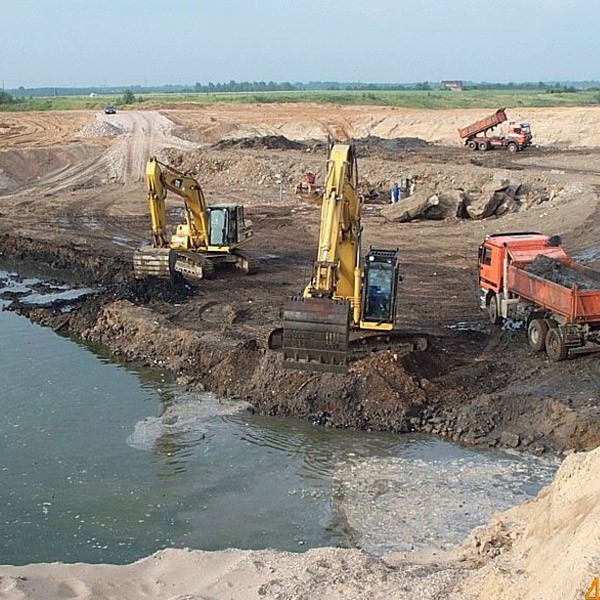
Groundwater is the basis of our existence. Worldwide, a "good condition" and the sustainable management of groundwater resources is the challenge for a secure future! We face the tasks and problem solutions around the topic of "groundwater" every day.
- Development of hydrogeological and hydrological basics
- Checking the supply and availability (e.g. pump tests, chemical analysis)
- Soil science evidence collection and environmental impact assessment
- Monitoring of approval procedures under water law
- Designation of protected areas
- Planning and monitoring of groundwater abstraction (extraction and during construction)
- Planning and monitoring of groundwater remediation (in situ and ex situ)
- Planning and monitoring of geothermal plants
- Groundwater quality mapping
- Infiltration and percolation (groundwater recharge)
- Vulnerability testing of aquifer systems
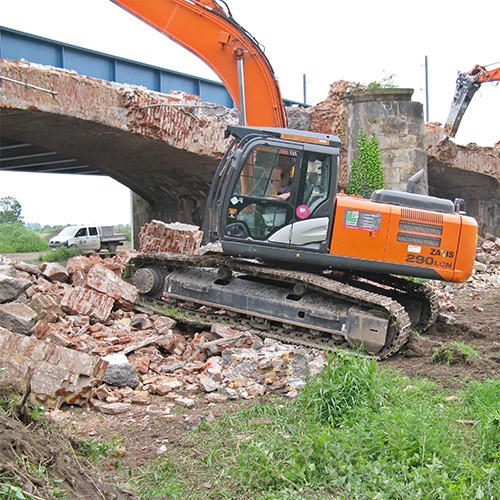
- Basic management in the course of preliminary planning
- Development of economic and resource-conserving land management
- Mass and cost forecasts
- Minimisation of material flows
- Sampling, analytics and expert evaluation of wastes
- Control and monitoring of waste streams
- Electronic record keeping for hazardous and non-hazardous waste
- Complete solutions for waste and soil management on your construction site
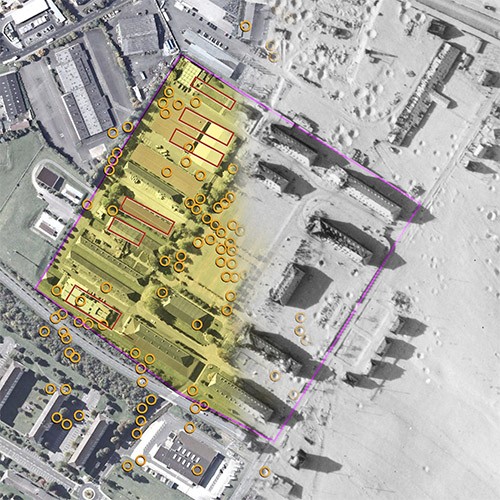
We are the leading specialists in the field of historical reconstruction.
- Basic research & archive research
- Historical explorations
- Europe-wide air strike database
- Remote sensing and aerial photo interpretation
- Designation of areas suspected of containing explosive ordnance
- Data preparation with GIS
- Assessment & Risk Assessment
- Technical investigations
- Clearing & probing concepts
- Occupational safety
- Preparation of tender documents
- Redevelopment planning
- Project management
- Quality assurance
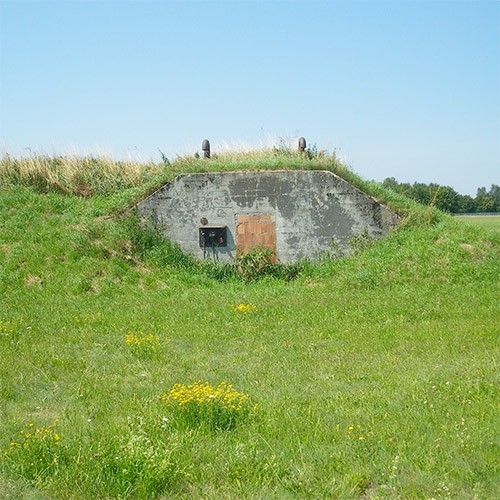
- Basic research & archive research
- Historical explorations
- Remote sensing and aerial photo interpretation
- Data preparation with GIS
- Assessment & Risk Assessment
- Technical investigations
- Redevelopment planning
- Preparation of tender documents
- Project management
- Quality assurance
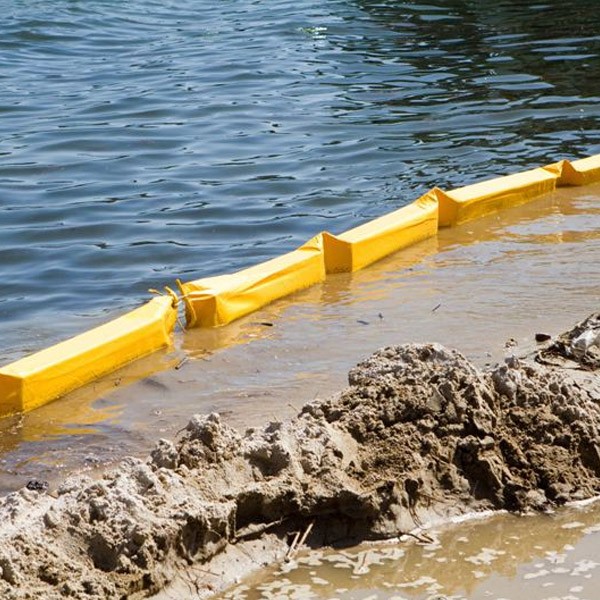
Requirements such as the permanent protection of groundwater and the biosphere make site selection and landfill planning more difficult. Old landfills, on the other hand, are often no longer state of the art. If they are leaking, safety measures and sometimes also emission monitoring must be carried out.
Landfill construction: We know the requirements - you get the solutions
We are there for you for all challenges in landfill construction and landfill rehabilitation. With landfill planning, landfill sealing and landfill remediation as part of waste management, safety and aftercare concepts.
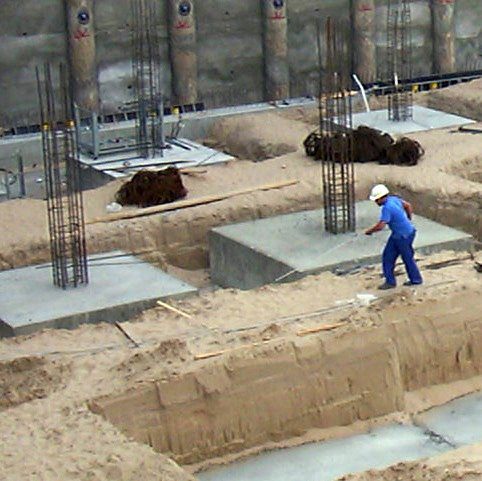
- Design and implementation of subsoil investigations according to DIN EN 1997-2
- Soil expertise (geotechnical report) according to DIN 4020 or the complete scope of services of the HOAI (Fee Structure for Architects and Engineers)
- Initial geotechnical assessments for the preparation of purchase decisions (preliminary explorations or archive research)
- Soil mechanics laboratory tests / own earthworks and field laboratory
- Settlement predictions for single foundations, foundation groups or slab foundations, optimisation of subgrade reaction coefficients
- Earth static calculations according to DIN EN 1997-1, geotechnical design reports
- Dimensioning of well systems and infiltration systems
- Cost estimates and variant studies
- Technical tender evaluation and contract award advice
- Expert monitoring of the construction work and inspections, bottom inspections, compaction checks
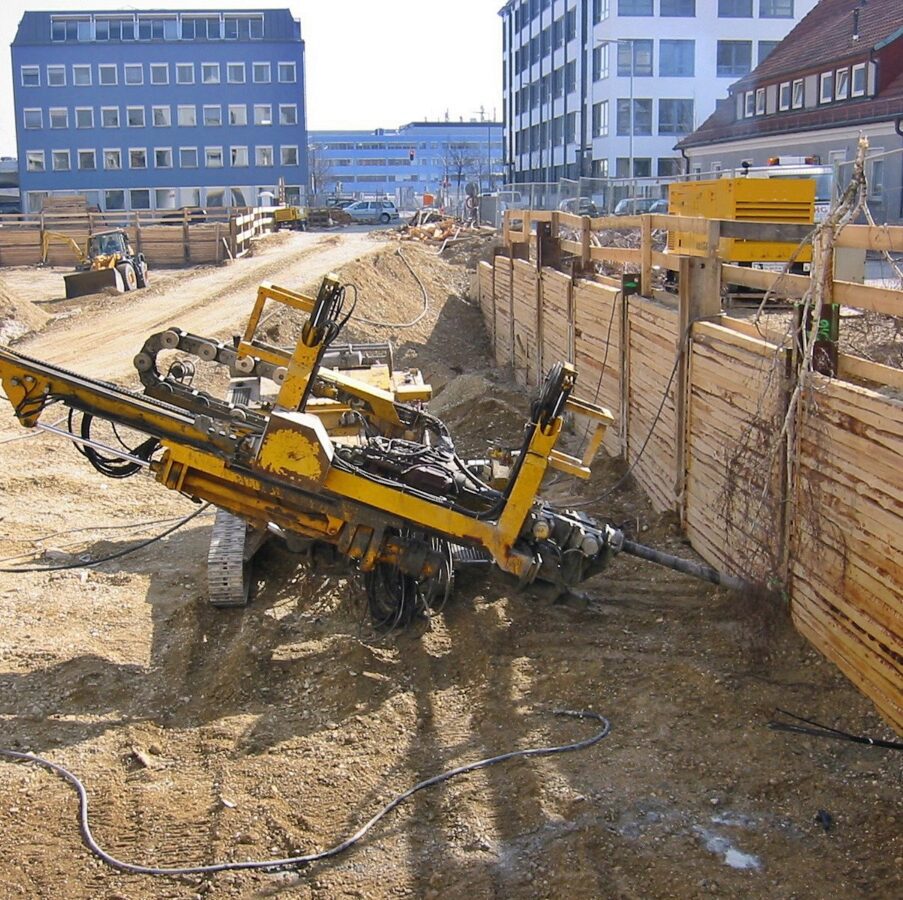
Our geotechnical engineering department plans, calculates and monitors geotechnical constructions of all kinds in all service phases of the HOAI and carries out the necessary approval procedures.
- Object and structural planning in earthworks and special civil engineering according to DIN EN 1997-1, EAP, EAB and associated regulations
- Preparation of verifiable stability verifications
- Use of standard industry software and own special solutions
- Applications for permits under the Water Resources Act
- Technical expert reports on permission agreements
- Mass determinations on digital terrain models, 3D-CAD constructions to clarify geometric conflicts
- Cost estimates, cost calculations, variant comparisons
- Creation of tender documents, GAEB format
- Technical and economic tender evaluation, procurement advice
- Expert monitoring of construction and acceptance, quality assurance plans, Final documentation
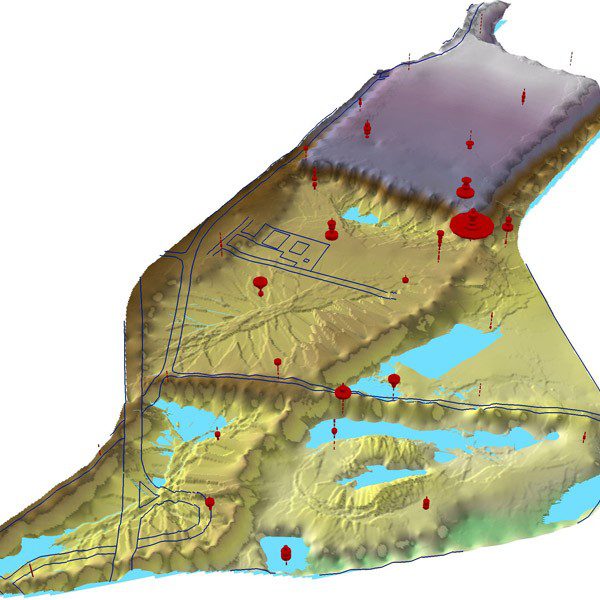
Directive 2010/75/EU on industrial emissions: Baseline report
Since May 2013, these industrial sectors have been obliged to submit an initial status report to the authorities before commissioning new plants. For old plants, transitional arrangements apply until July 2015.
The AZB is intended to document the condition of the soil and groundwater with regard to the so-called "relevant hazardous substances" used on the plant site. It serves as a standard of comparison and as evidence for the obligation to return the substances in the event of decommissioning of the facility.
The CSA provides information on the use history of the facility site, presents the environmental framework conditions and assesses existing or newly collected soil and groundwater data.
We support you in all matters relating to the preparation of an AZB:
- AZB - Preliminary examination
- Authority management
- Assessment of the relevant hazardous substances
- Historical research
- Preparation of investigation and monitoring concepts
- Carrying out soil and groundwater investigations
- Assessment of the baseline condition
- Documentation and reporting
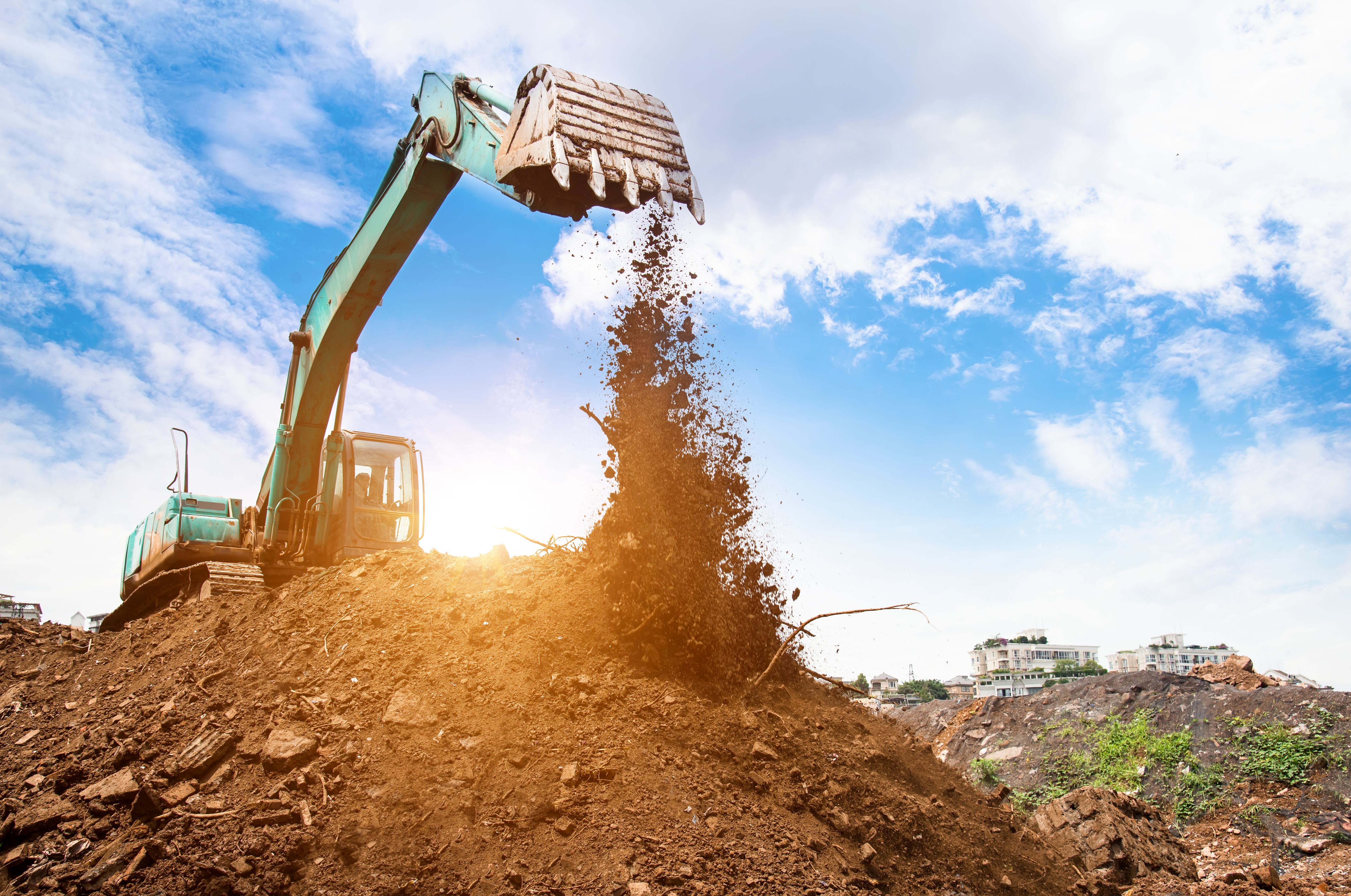
- Raw materials exploration
- Prove deep disposal sites
- Use of innovative
- Examination technique
- Sustainable management
- Recultivation
- Prove deep disposal sites
- Use of innovative examination technology
- Sustainable management
- Recultivation
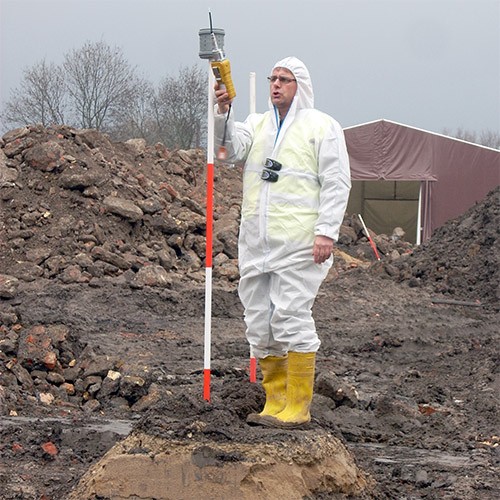
Our trained safety and health protection coordinators (RAB 30) take over the cross-trade safety coordination on construction sites on the client's order. In the planning phase, we take over the preparation of the preliminary notice, the safety and health plan and the documentation according to BauStellV. In the execution phase, our SiGeKo coordinates the safety and health protection-relevant interactions of the various works on the construction site.
- Coordinator activities (TRGS 524 / 521 // DGUV 101-004) / Work and safety plans
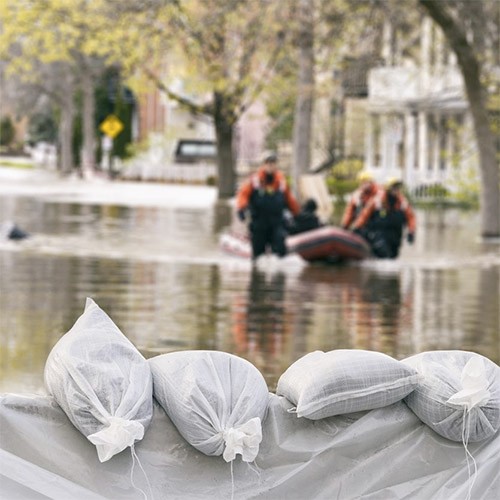
A risk analysis taking into account local conditions is an essential step towards effective disaster preparedness.
Due to our many years of experience in project management and advising authorities, we are experts in supporting districts, municipalities and companies in the prevention and implementation of risk analyses. In this way, we develop a comprehensive decision-making and planning basis for your risk and crisis management.
- Preparation and data collection
- Identification of local protected assets and damage classes
- Definition of hazard scenarios
- Estimation of probabilities and extent of damage
- Moderation and communication
- Project management and documentation
- Introductory and training events
Disaster risk management - For improved risk and crisis management
- Historical research/reconstruction
- Hazard prevention planning
- Safety planning/fire protection
- Subject and spatial information systems
- Model technology and risk analysis
- Flood protection and hydraulic engineering
- Detection and assessment of sensitive infrastructures
